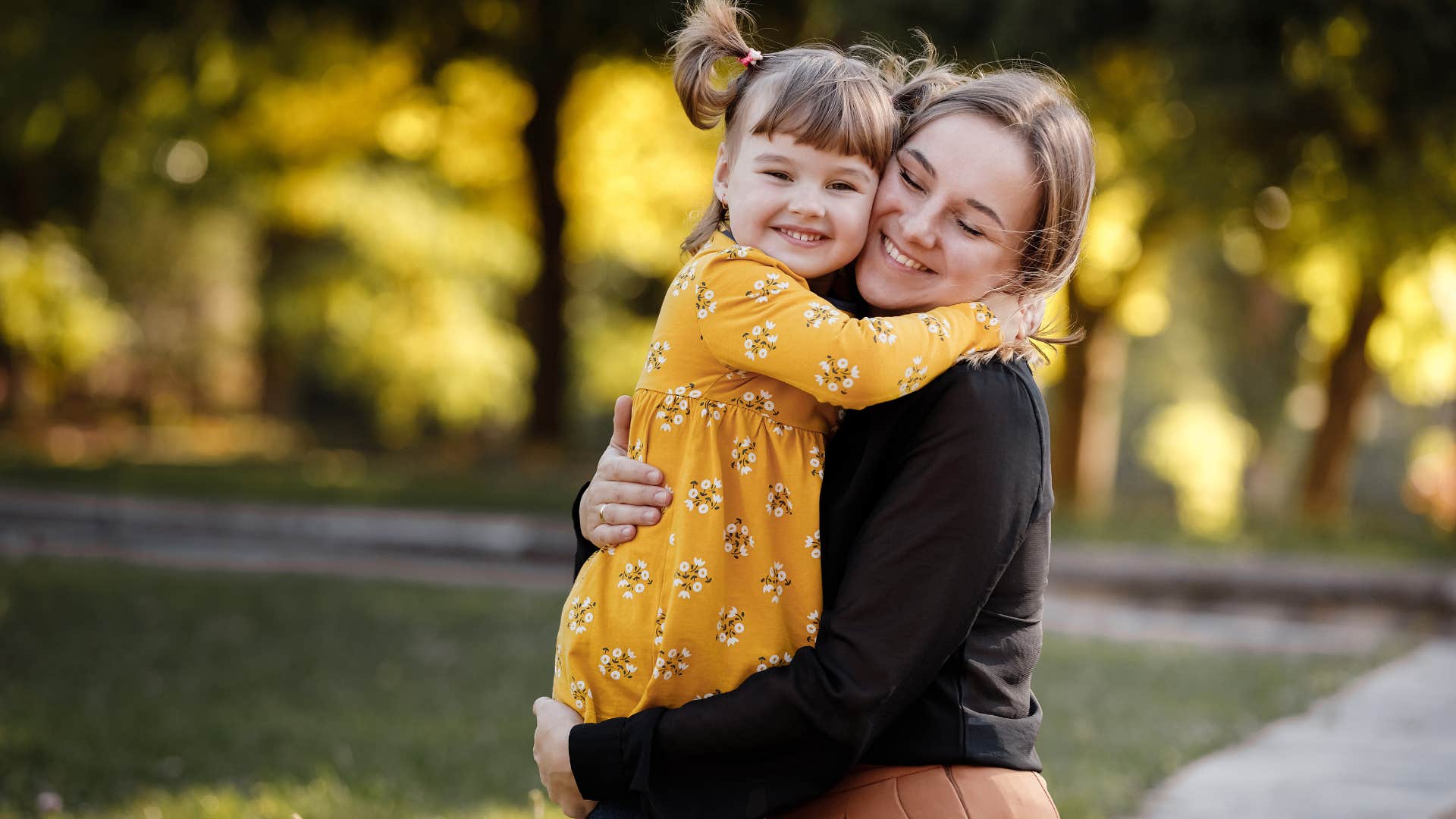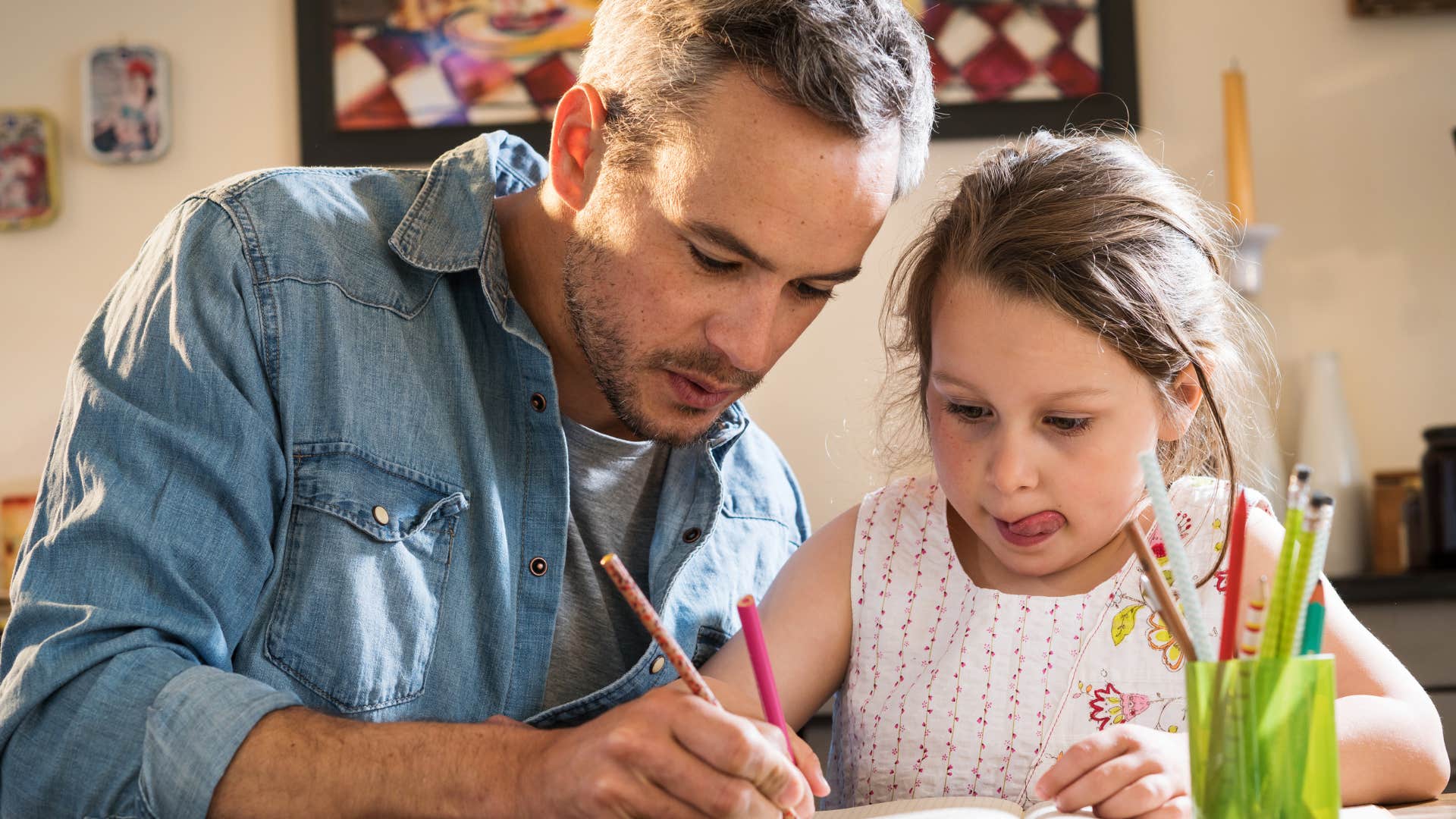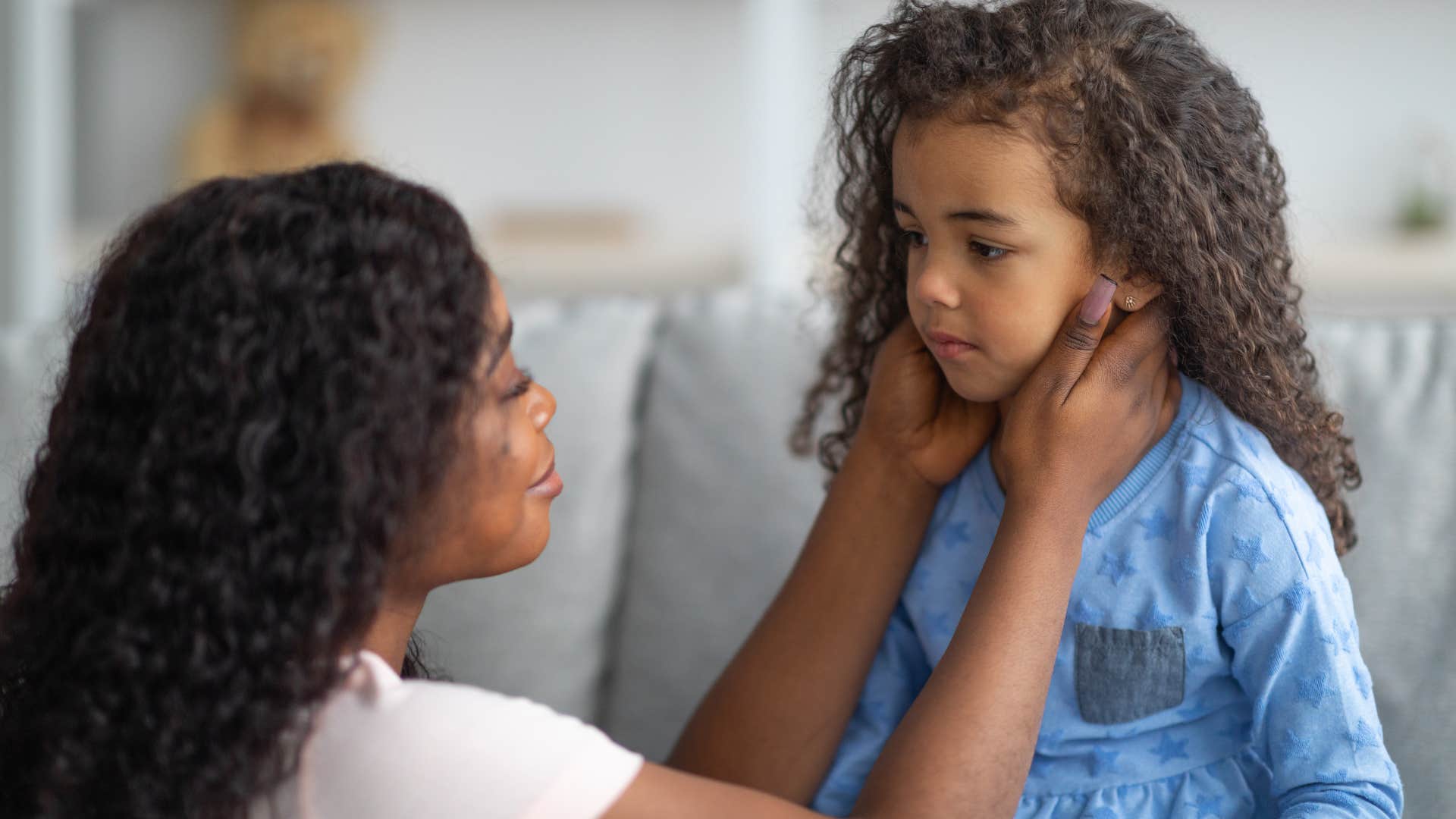Your Parents Did A Great Job Raising You If They Taught You These 11 Phrases
Reminding yourself of these phrases can help you appreciate a healthy upbringing and encourage you to live by these basic principles.
 VGstockstudio | Shutterstock
VGstockstudio | Shutterstock Navigating parenting is hard enough amid social stereotypes, expectations, and the chaos of daily life, but remembering a few basic principles can help guide parents in the right direction. From basic empathy, to open communication, and respect, children thrive when they're supported by their parents, both physically and emotionally.
Later in life, adult children learn to cultivate healthy relationships and create their new lives with those basic principles, even if they're subtle one-liners or memories from childhood. Your parents did a great job raising you if they taught you these phrases, reminding you of the best ways to lead with compassion, advocate for yourself, or set boundaries amid conflicts or uncomfortable situations.
Here are 11 phrases your parents taught you if they did a great job raising you
1. 'You can be mad, but you can't be mean'
 Media_photos | Shutterstock.com
Media_photos | Shutterstock.com
Whether you're reflecting on a conflict in your child's life or trying to process anger together, using a phrase like this can ensure that you're both given room to emotionally express yourself without hurting or sabotaging another person's space in a conversation.
If your parents taught you a phrase like this, chances are you view arguments and conflict as a space for connection and growth, rather than something to avoid at all costs out of anxiety or fear.
By being given space as a kid to express vulnerability and to feel heard while doing so, adult children can now cultivate healthier relationships — whether they're intimate, platonic, or professional — by communicating openly and working through conflicts before they manifest into resentful feelings and frustration.
2. 'You are in charge of your own body'
 Andrii Medvediuk | Shutterstock.com
Andrii Medvediuk | Shutterstock.com
Like experts from the Alliance for Children suggest, teaching kids about bodily autonomy and consent starts from a young age, with seemingly subtle behaviors like asking them if it's okay to give them a hug, taking a firm stance on physical violence with friends, or even encouraging them to set boundaries with physical touch at family gatherings.
By reminding them that their voice is heard and should be respected, parents not only build confidence in their kids to set boundaries and advocate for themselves physically with a phrase like this, but also take pride in the respect they offer to others into adulthood.
3. 'Are you tattling or telling?'
 AstroStar | Shutterstock.com
AstroStar | Shutterstock.com
Encouraging kids to take accountability for their actions and words can help set them up for success in adulthood managing conflicts, building healthier relationships, and holding themselves to a high standard. Kids have a tendency to "tattle" on people to gain a misguided sense of trust, hoping to make themselves look better amid rigid social structures by putting someone else down.
A healthy parent can recognize this natural tendency, using a phrase like this to encourage accountability and trust, while reminding their kids that everyone can succeed and feel supported, never at the expense of each other.
There's a good chance your parents did a great job raising you if they taught you these phrases centered around accountability, because not only are you less focused on external validation and comparison culture, you likely prioritize open communication over blame-shifting and misguided victimhood.
4. 'You don't have to be friends with everyone, but you have to be friendly'
 DimaBerlin | Shutterstock.com
DimaBerlin | Shutterstock.com
Not everyone in life is going to be worthy of your constant support and love, but everyone deserves a basic level of empathy, whether they're a stranger or an intimate partner. Even if you don't know someone, treating someone with respect can help to both bolster healthy connection and internal well-being, like experts from the Harvard School of Public Health argue.
Great parents encourage their kids to lead with empathy and compassion in their lives, knowing that it will help set the groundwork for foundation skills like open communication, building trust, and securing confidence and an important self-esteem.
5. 'No means no'
 PeopleImages.com - Yuri A | Shutterstock.com
PeopleImages.com - Yuri A | Shutterstock.com
By teaching kids to learn rules and responsibility early in life, great parents help to set them up for success later in life, navigating their own relationships, problem-solving through struggles, and building an innate sense of confidence interacting with others. This starts with encouraging them to take responsibility for setting their own boundaries and communicating their needs — even if it's with a phrase as simple as "no."
By ensuring they respect your wishes, "no's," and needs, children learn to have that same confidence defending and asserting their own boundaries. If they don't want to do something, they can communicate that honestly, openly, and confidently.
Entitlement, greediness, and narcissistic tendencies are bred from kids that never learn to respect the phrase "no means no," expecting others to sacrifice their own well-being to support and provide for them.
6. 'Actions speak louder than words'
 Prostock-studio | Shutterstock.com
Prostock-studio | Shutterstock.com
Kids are naturally intuitive and smart, picking up on subtle cues, their parents' behavior, and uncomfortable emotions and situations early in life. Great parents use a one-liner phrase like this to teach their kids to tap into that intuition in every aspect of their lives, from navigating personal relationships to advocating for themselves at work.
Of course, verbal communication is important, helping us to verbalize our emotions and express our needs, but actions, body language, and nonverbal cues are equally important to acknowledge and address.
7. 'Who thinks it's funny?'
 Anna Stills | Shutterstock.com
Anna Stills | Shutterstock.com
No matter what age they are, children are going to get their feelings hurt under the disguise of "a joke." Even in their own home, they might have a sibling or a parent use the phrase "It's just a joke" to gaslight them into putting their uncomfortable feelings to the side to protect the peace in a relationship.
By teaching kids to advocate for themselves with a phrase like this, it encourages people to take accountability for their actions, especially when they've contributed to hurting someone else. And instilling lessons like this in children leads them to become emotionally intelligent adults.
8. 'How can I support you right now?'
 Olena Yakobchuk | Shutterstock.com
Olena Yakobchuk | Shutterstock.com
Like experts from the University of Michigan suggest, supportive communication is multifaceted, with a mix of verbal and nonverbal cues, specific phrases, and a general attitude committed to active listening that helps bond two people together. Especially in emotional times or amid conflict, teaching kids to rely on a phrase like this can help satisfy many of the underlying foundations of good communication like trust, active listening, and support.
By asking someone what they need and being open to providing it, everyone has a better chance at feeling heard, understood, and valued in a conversation, leading to a more balanced emotional state and potential for future relationships.
9. 'There's no such thing as a stupid question'
 Jack Frog | Shutterstock.com
Jack Frog | Shutterstock.com
Kids are innately curious, but when their environments aren't conducive to their excitement about life and curiosity about learning, they tend to fall into unhealthy habits suppressing their interests and conforming to more rigid societal and familial norms.
Your parents did a great job raising you if they taught you this phrase that encourages kids to step out of their comfort zone, ask questions, and be generally curious about everything.
Not only does it remove the shame and discomfort many kids feel speaking up, especially in environments where there's rigid expectations, it sparks curiosity and encourages kids to involve themselves in "play" that boosts their health, general well-being, and happiness, as Harvard Health experts agree.
10. 'Everyone is deserving of kindness and compassion'
 Prostock-studio | Shutterstock.com
Prostock-studio | Shutterstock.com
Considering many children pick up on harmful stereotypes and prejudice from their parents as early as 3 to 4 years old, it's important that parents are cognizant of the way their beliefs and attitudes about the world shape their child's future behaviors, even into adulthood.
By reminding them to lead with empathy and compassion, they not only learn to set more intentional boundaries that protect positivity in their lives and relationships, they also don't discriminate, look down on, or build up an ego centered around breaking others down; they celebrate and empower others.
Helping to build their positive social relationships and outward perceptions, leading with this generally empathetic attitude can open up doors for personal development, growth, and healthy connections.
11. 'Not everyone will like what you like'
 Prostock-studio | Shutterstock.com
Prostock-studio | Shutterstock.com
While kids might be drawn towards their family's routines and the things they find interesting, tasty, or fun, it's important that parents take the time to teach their children about perspective and respect. Even if you don't like something, that doesn't mean it's "bad," because there's somebody else out there who truly enjoys it.
By teaching kids this basic phrase, you not only teach them basic empathy, but perspective of the world and tips for engaging with people who share differing opinions from them. While it might seem subtle as a parent raising kids, this empathy will add value to their own relationship as well, especially in response to the disconnect, shifting values, and identity-building that happens later in a child's life.
Zayda Slabbekoorn is a staff writer with a bachelor's degree in social relations & policy and gender studies who focuses on psychology, relationships, self-help, and human interest stories.

